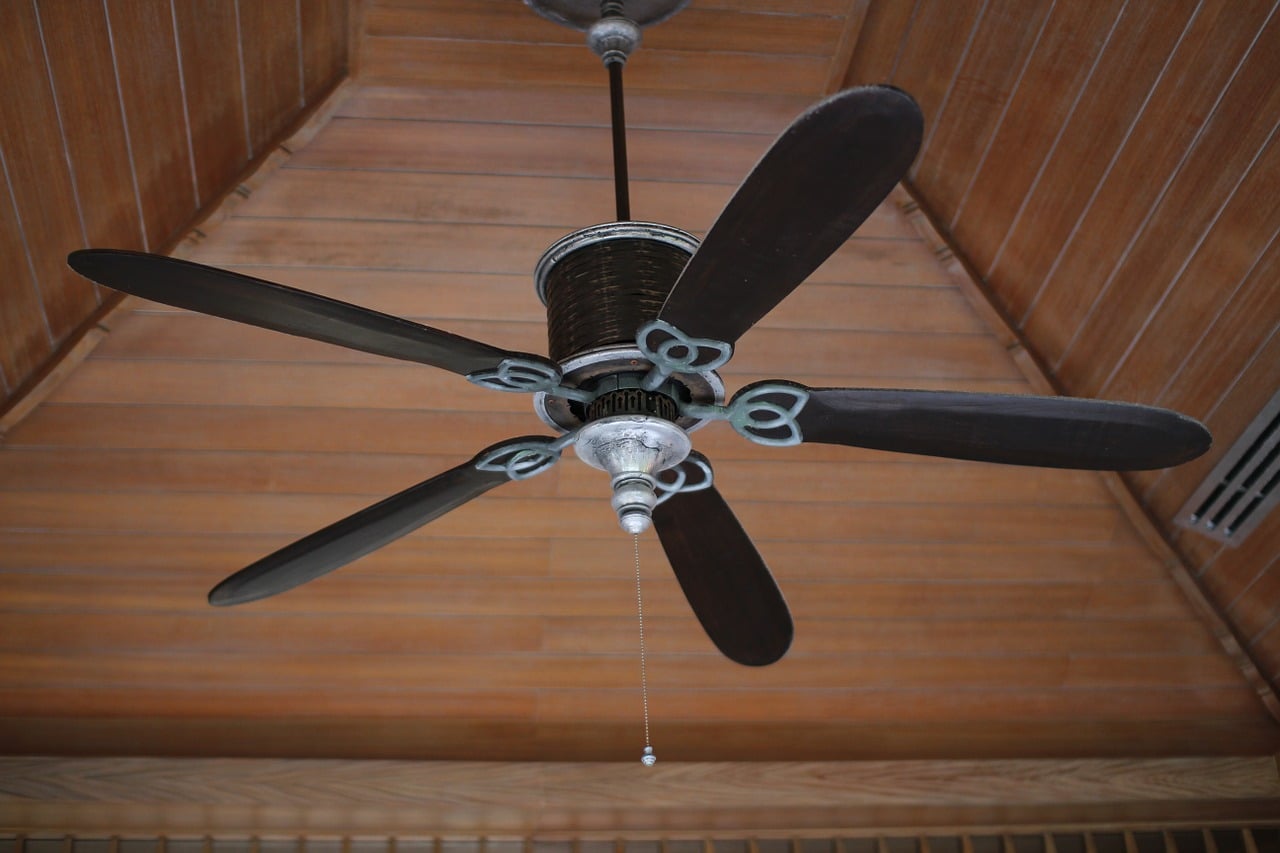
Most people, when the heating season arrives, just turn off their ceiling fans for the winter. They no longer need the cooling effect of moving air that occurs in the summer. What they don’t realize is that a ceiling fan also can help with wintertime heating. It saves energy differently from the way a ceiling fan will save energy during the cooling season.
During the summer, ceiling fans create a cooling effect; the moving air passing across a human body evaporates perspiration, making your body feel cooler. The fan operation doesn’t lower the temperature in a room but it does make it feel a few degrees cooler. Energy savings result when you turn up the thermostat a few corresponding degrees without any loss of comfort.
In the winter, switching the switch on the fan housing to “winter mode” reverses the fan blade rotation from counter-clockwise to clockwise. This results in the fan blowing upward toward warm air that collects near the ceiling. The moving air pushes that warm air out toward the walls and down into the room where people can feel it. Importantly, the thermostat on the wall also can “feel” that warmer air. Energy savings result when the thermostat doesn’t kick on the furnace or heat pump as frequently.
So in the case of fan operation in the summer, you gain energy savings from a “cooling effect” of moving air, whereas in the winter, you save energy because the room — or the part of the room occupied by people — actually gets warmer.
Another difference between ceiling fan benefits in summer and winter is that during the cooling season, a ceiling fan wastes energy when operating in an empty room. Nobody’s there to feel the cooling effect. In the winter, however, if you turn off the ceiling fan as you’re leaving a room, the thermostat, detecting cooler air, will switch on the furnace all the sooner, wasting energy.
For more advice on how ceiling fans can save energy in your Eastern North Carolina home in all seasons, please contact us at Jackson & Sons Heating and Air Conditioning.
Our goal is to help educate our customers in Eastern North Carolina (including Wayne, Johnston, Greene, Lenoir, Pitt and Duplin Counties) about energy and home comfort issues (specific to HVAC systems).
Credit/Copyright Attribution: “Name of Artist/Shutterstock”